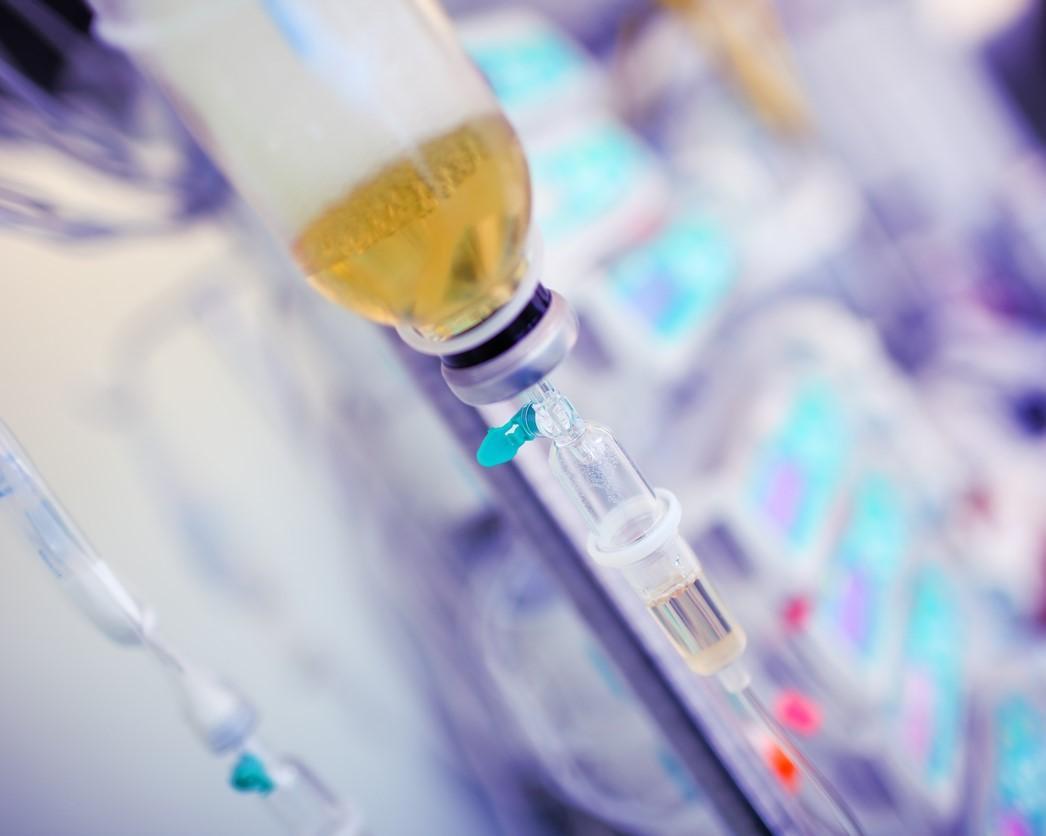COVID-19 patients may be less likely to develop severe illness and persistent symptoms if they are treated early with convalescent plasma, according to a nationwide, multicenter follow-up study published yesterday in mBio.
Johns Hopkins University researchers led the study, which involved 882 COVID-19 patients participating in a 2021 randomized trial on the effect of SARS-CoV-2 antibody–rich convalescent plasma on hospitalization. The 2021 trial, which included 1,181 symptomatic adults, concluded that convalescent plasma was safe and effective for the early treatment of COVID-19. It was published on the preprint server medRxiv.
In the new study, the team evaluated concentrations of 21 cytokines and chemokines at baseline and 14 to 90 days after they received COVID-19 convalescent plasma. Follow-up was 90 days. Median age among the 882 participants was 43 years, 57.4% were women, and 13.2% were Black.
Cytokines and chemokines are signaling proteins that cells secrete in response to an infection. They trigger immune reactions such as inflammation, which may be excessive or unchecked in COVID-19, potentially leading to long COVID, also called post-COVID condition (PCC).
Risk factors for long COVID
A third (33.1%) of the participants had long-COVID symptoms 90 days after receiving convalescent plasma within 5 days of symptom onset. The most common symptoms were fatigue and loss of smell, at 14.5% each. Cytokine concentrations and chemokine levels, which were elevated for most participants, declined more from baseline to 90 days among convalescent plasma recipients than among patients given control plasma.
A multivariable analysis showed that female sex (adjusted odds ratio [aOR], 2.69), older age (aOR, 1.32), and elevated levels of the cytokine interleukin-6 (IL-6) at baseline (aOR, 1.59) were tied to the development of long COVID.
Despite increasing vaccination uptake, PCC risk does not disappear, and IL-6 modulation may be a possible therapeutic intervention to reduce the burden of long-term symptoms among those with SARS-CoV-2 infection.
"Our study is among the first to show that elevation of IL6 early after the onset of infection is associated with post-COVID conditions," co-lead author Kelly Gebo, MD, MPH, said in a Johns Hopkins Medicine press release. "It appears that when IL6 levels remain elevated during the COVID-19 recovery phase, it likely contributes to post-COVID conditions."
The study authors noted that inflammation appears to have a critical role in COVID-19 prognosis and that previous studies have shown that patients with high levels of IL-6 and C-reactive protein (another inflammatory biomarker), especially male patients, are more likely to have more severe disease and a higher risk of hospitalization during infection.
"Following our initial study, health care professionals kept SARS-CoV-2 antibody-rich blood plasma available in their blood banks as part of the treatment arsenal against COVID-19 in people who are immunocompromised; and now, our new findings show it also may lower the risk of post-COVID conditions," co-lead author David Sullivan, MD, said.
Gebo said future research could focus on the effects of a combination of anti-IL6 agents and other treatments against COVID-19 among non-hospitalized patients. "Despite increasing vaccination uptake, PCC risk does not disappear, and IL-6 modulation may be a possible therapeutic intervention to reduce the burden of long-term symptoms among those with SARS-CoV-2 infection," the researchers concluded.






















